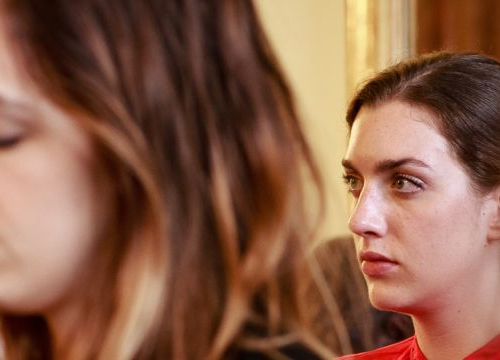A Network for Geneva-Based PhD Students on Areas within the Scientific Focus of the Geneva Academy


Sandra Pointet/Geneva Academy
5 November 2018
Conscious of the importance of peer-to-peer exchanges in academia, a group of our teaching assistants coordinates the Geneva Academy Wednesdays (GAWs), a platform to foster the exchange of ideas and develop a network of PhD students from the Graduate Institute of International and Development Studies and the University of Geneva who conduct research on areas within the scientific focus of the Geneva Academy.
On Wednesdays
GAWs take place on Wednesdays in the format of roundtables closed to the general public, where one or more PhD students from the Graduate Institute or the University of Geneva present their research, ideas, working papers or draft thesis chapters.
‘The objective is that participants can present their work and research in an informal way and receive constructive feedback on from their peers in a respectful and welcoming setting’ underlines Firouzeh Mitchell, Teaching Assistant at the Geneva Academy.
‘We plan to hold GAWs on a regular basis, every month or two. Previous GAWs have notably focussed on the accountability of armed groups under international law, transparency in the use of lethal force, the right to life or autonomous weapon systems’ explains George Dvalaze, Teaching Assistant at the Geneva Academy
Fostering Exchange and Discussions among Young Scholars
The GAWs are open to all Geneva-based PhD students who conduct research on issues related to international humanitarian law, international human rights law, international criminal law, international refugee law and transitional justice, as well as on selected public international law topics.
‘We want to make the Geneva Academy a hub for Geneva-based young scholars at different stages of their research to share their work and foster connections’ stresses Alessandra Spadaro, Teaching Assistant at the Geneva Academy.

An Upcoming Discussion on Detention by Armed Groups
On Wednesday 21 November 2018, the first GAW of the 2018-2019 academic year will focus on detention by armed groups.
Joshua Niyo, Teaching Assistant at the Geneva Academy, will present a draft paper on non-state armed groups and the power to detain in non-international armed conflicts. Alessandra Spadaro, who is writing a thesis on detention by armed groups under international law, will present a draft chapter on (disciplinary) detentions by armed groups of their own members. Light refreshments will be offered at the end.
Join the Network
If you’re interested in joining this network, you can fill this form to subscribe to the GAW mailing list and be informed about future GAWs.
Should you have any additional question or be interested in presenting your work, do not hesitate to contact us via email at This email address is being protected from spambots. You need JavaScript enabled to view it..







